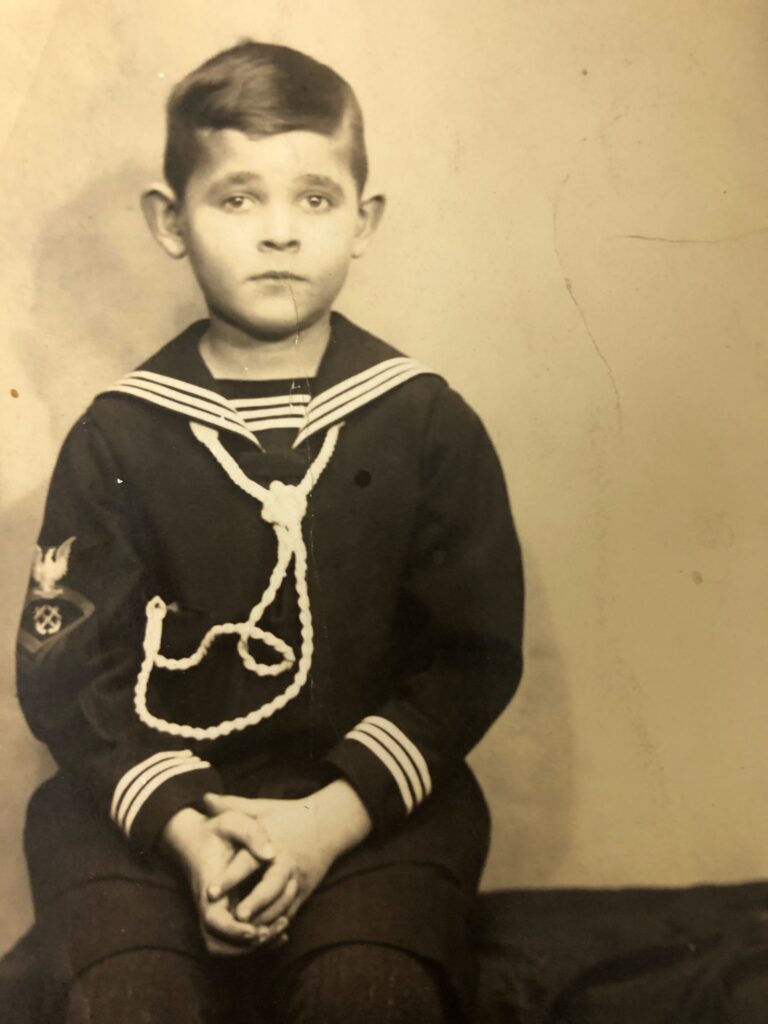Since many of us are sad about not traveling this pandemic year to join loved ones at Thanksgiving, I thought I’d share a little intergenerational story just to remind ourselves of how complex family relationships are — and to suggest, sometimes it’s nice to just stand back and ponder.
Every Sunday my dad would telephone his mother who lived 900 miles away “high in the hills”, as he put it. His side of the conversation was mostly “yep… yep… nope… of course…doing well…”, sighing heavily when he hung up. He made it clear she was a difficult person, and told negative stories about her. He also told me how I, in particular, had annoyed her during our one visit when I was little. And he’d wrap up his rant saying that, when he was little, she threw a tuna can at his head.
Unable to picture that elderly woman being so cruel to her little boy, I continued sending her cards on mothers’ day and her birthday and thank-you notes for the beautiful dresses she sent me for Christmas. Her responses were warm and grandmotherly, so I grew up with dueling versions of her –- what I saw and what my dad said. I went with his version, thinking he wouldn’t make up something like that.
I was at visiting my folks some time after I’d raised my own children to adulthood and knew tough parenting was and heard my dad launch into the tuna-can story for my nieces. When he’d finished and his audience was gasping with horror, I asked something I’d never thought to ask before: “Wait – was it an empty can?” I’d always assumed so, which was bad but not horrendous.
“No, it was full.”. Well, this gave the story new gravity — he could’ve suffered brain damage. Or worse!
But my mother instinct smelled something fishy. I said, “Ok, Dad, Mothers don’t just lob full cans of tuna at their kids for no reason. What the heck were you doing at the time?”
He said, “I was sticking a fork into the electrical outlet.”
Well! How often have I not asked such a simple follow-up question that would have clarified a relationship? How often had I failed to really know someone because of it? How many wrong assumptions had I made by believing my own eyes and ears? I grew up in a culture that says it’s bad manners to discuss religion and politics. But isn’t that what’s brought us to this country divided by misunderstandings and mistaken assumptions? The divide is so great, in fact, that these topics can’t be tackled head-on anymore because eyes and ears are closed to that approach. But we can share stories that show how we feel and we can reflect back whatever gifts we get from those stories.
My response to my dad doesn’t model that approach, — he was trying to say he’d felt he was the victim of child abuse, but I stood up for a fellow mother and .said, “Dad, she saved your life!”
May your Thanksgiving be drama free.

I’ve been verifying a couple of childhood stories recently and finding out how different my siblings’ perspectives are about the same events. History can be a dangerous thing. 🙂 I really appreciate your story.
Susan, So true. We each have our unique perspective. Birth order, sex, family situation, ability, personality, attributs, talents, etc. etc. all contribute to our particular lens.